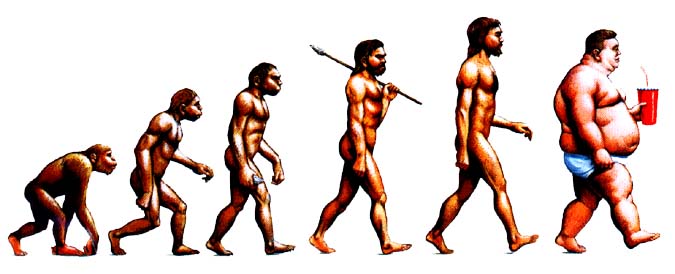 Last time I covered roughly the first 12 years of my life. Here, I go up to the point where I left home for college.
Last time I covered roughly the first 12 years of my life. Here, I go up to the point where I left home for college.
The Charismatic church we’d always attended had split, and my family too decided to leave. Thus, we embarked on the unpleasant task of “church shopping,” for awhile going to a different place each Sunday.
We ended up at a place in Plano (near Dallas) called Fellowship Bible Church North (since renamed), founded and pastored by Gene Goetz, who had taught at Dallas Theological Seminary.
This church was a very different place, completely reflecting the very conservative (yet not fundamentalist) DTS ethos. For one thing, it was strongly cessationist. This is roughly the view that now that the church has the Bible, it no longer needs, and God no longer gives miraculous spiritual gifts such as healings, prophecies, or speaking in tongues. I remember meeting one guy there who asserted that at his former Charismatic church, there was a guy who whenever he (thought he) spoke in tongues, just endlessly repeated: come-in-a-honda-leave-in-a-mazda. I met another young lady with some congenital illness, who’d been in a “faith movement” church before, and had been told that it was her fault that she was still ill – her sinful lack of faith was to blame. Very sad. But I didn’t draw any conclusions about cessationism. 
Their cessationism ended up being a bit of a problem for my parents, who still believed in those gifts, but they liked the people, and the very organized sermons, which were more like seminary lectures than you’d think. Each was accompanied by a little colored sheet, about 6×9 which has sort of outline notes that you could fill in as you listened.
Note the “Fellowship” in the title of the church. This was accomplished by members being encouraged to participate in periodic “mini-church” meetings in people’s homes. And, by the fact that after every service, they put out dispensers of cheap lemonade, which folks were encouraged to stand around and imbibe as they fellowshiped post-service. Also note the word “Bible” in the title of the church. (On the whole, it was a well-labeled place.) Even more than many Protestants, we viewed the Bible as the source and foundation of all our beliefs. One didn’t hear about the creeds – just the Bible, with a particular emphasis on the letters of Paul.
At the time, I was a scrawny, awkward kid for whom youth group meetings were both scary and exciting. In my high school years, I started paying attention, to see if I really believed all this stuff. I faithfully attended youth groups, got myself a big ole’ NIV Study Bible, and even sometimes studied the Bible with a friend or two – on our own, without any parent or pastor urging us to.
In general, I liked the people in the church. Being a teen, I wasn’t always paying attention, but when I did I generally learned things. And a string of youth group leaders were kind people and good models. I looked up to them and admired their adult faith. I learned from them many things about being a Christian. Together, we took the Bible’s message seriously.
And not just seriously.
Like DTS, the doctrine of inerrancy was assumed. The church’s current statement of faith, probably not changed since I was there, begins:
The Bible
We believe the Bible, composed of the Old and New Testaments, is God’s revelation to us, written by human authors who were supernaturally guided by the Holy Spirit. As the very word of God, it is without error in the original manuscripts and serves as our supreme and final authority in all matters about which it speaks. (2 Tim. 3:16-17; 2 Pet. 1:20-21)
Second up:
The Trinity
We believe God is One, the only God, eternally existing in three equal persons: Father, Son and Holy Spirit, each completely and fully God. (Deut. 6:4; Matt. 28:19; Eph. 4:4-6)
Theologically, this is some very watery soup (seasoned, barely, with a few shreds of proof-text). On the face of it, it is compatible with what you might call a modalistic understanding of the Trinity, on which God is a single divine self who lives eternally in three ways – so each of the Three just is that one divine self, God. And it seems incompatible with the sort of “social” (three-self) trinitarianism that’s so popular nowadays with evangelical theologians.
so each of the Three just is that one divine self, God. And it seems incompatible with the sort of “social” (three-self) trinitarianism that’s so popular nowadays with evangelical theologians.
Perhaps this was meant to be an abbreviated version of DTS’s article, which is a little more full:
Article II—The Godhead
We believe that the Godhead eternally exists in three persons—the Father, the Son, and the Holy Spirit—and that these three are one God, having precisely the same nature, attributes, and perfections, and worthy of precisely the same homage, confidence, and obedience (Matt. 28:18–19; Mark 12:29; John 1:14; Acts 5:3–4; 2 Cor. 13:14; Heb. 1:1–3; Rev. 1:4–6).
Here it is not “God” but rather “the Godhead” which exists in the three. “Godhead” here must mean not the Trinity, but rather the divine nature; that they share this (somehow) makes thee Three amount to just one god, and have all the same essential features. This might be compatible with some sort of “social” or three-self theory, the kind where the Trinity aren’t a group, but rather a god.
In any case, at the time, under the tutelage of folk who composed creeds like these, what did I think about the Trinity? Again, I would say that I didn’t think about it.
 I would have said that Jesus is God, meaning, that he’s God himself, God in human form. The gospel is that Jesus died to pay for our sins, and only God himself could do that, right? Plus look at those miracles – only God could walk on water, or raise the dead, right? Basically, “Jesus” is God’s proper name, and I used “Jesus” and “God” interchangeably.
I would have said that Jesus is God, meaning, that he’s God himself, God in human form. The gospel is that Jesus died to pay for our sins, and only God himself could do that, right? Plus look at those miracles – only God could walk on water, or raise the dead, right? Basically, “Jesus” is God’s proper name, and I used “Jesus” and “God” interchangeably.
I now think that I was, much of the time, simply confusing the two – like a person who thinks that George H.W. Bush and George W. Bush are the same man. In other moments, such as when I was was reading the Bible, I again distinguished Jesus from the God he served. But if you asked my “Who is Jesus?” I’d say “God” – meaning, God himself. Which is to say: I’d once again confuse God together with his Son.
In high school I had a Mormon friend or two, and I also became aware of the existence of Jehovah’s Witnesses. I was curious about these groups and read a bit about them, but what I picked up from certain evangelical apologists is that the important thing about these groups is that they have the wrong Jesus. That is, they don’t think “Jesus is God.” Obviously, I thought, these cultists don’t read the Bible or are blinded somehow by human philosophy, because they can’t see that it plainly says that Jesus is God himself. I mean, look at John 1 – “and the Word was God.”
I was aware that these others, this Father and Holy Spirit are also God. About how this could be I’m sure I had no views. Probably, often I thought of God as having three parts – God is the Trinity, and this triune god is composed of the Three together. How can God be Jesus, and also the whole Trinity, of which Jesus is one third? Again, I didn’t think about it. None too clear about what this doctrine was, I would’ve just pointed at texts which seem to imply that each is individually God, and then to ones asserting there to be just one god.
After reading some apologetics, I thought the question “How could it be?” was a perverse one. After all, God’s ways are higher than our ways. How could we expect to completely understand God Almighty?
Thus far, my views on the Trinity were entirely informed by how American evangelicals read the Bible, and slightly by how evangelical apologists argue against the theologies of some marginal groups.
I went off to college in 1989, to start the first of what eventually became three degrees. As the nineties went on, there were some new influences.

Thanks for part 2.
I can relate to much of what you experienced here except that I was raised in a devout Catholic home and “didn’t pay attention” until I was a teenager when I began to actually think about God and his role in my life. When I look back, it’s interesting that my parents always instilled a healthy fear of God in my life as a young child, but I really didn’t try to understand anything about theology until they stopped forcing me to go to church (when I was in high school).
Like you, I met some other students in high school (including my first girlfriend) who had other denominational backgrounds (including some “cultic” ones) and began to think about the Bible and trying to understand why there were different opinions. But, the Trinity doctrine didn’t really become an issue for me until later.
very interesting. Looking forward to part 3…
Thanks, Paul. Parts 3 and 4 or Wed and Thur.
Comments are closed.